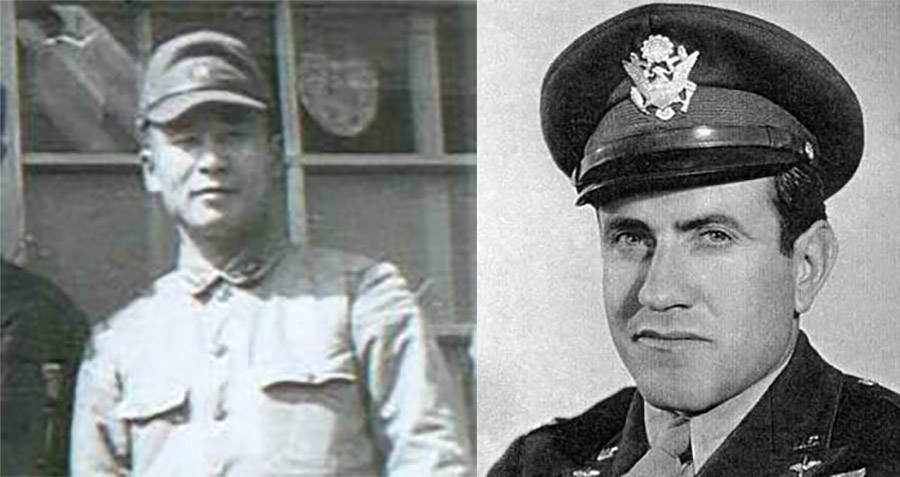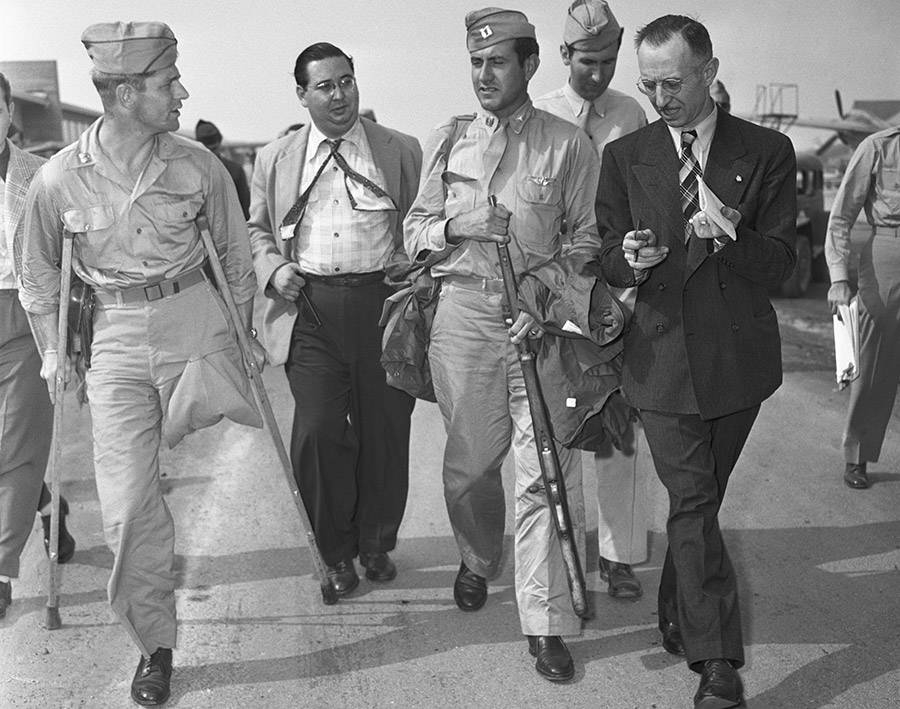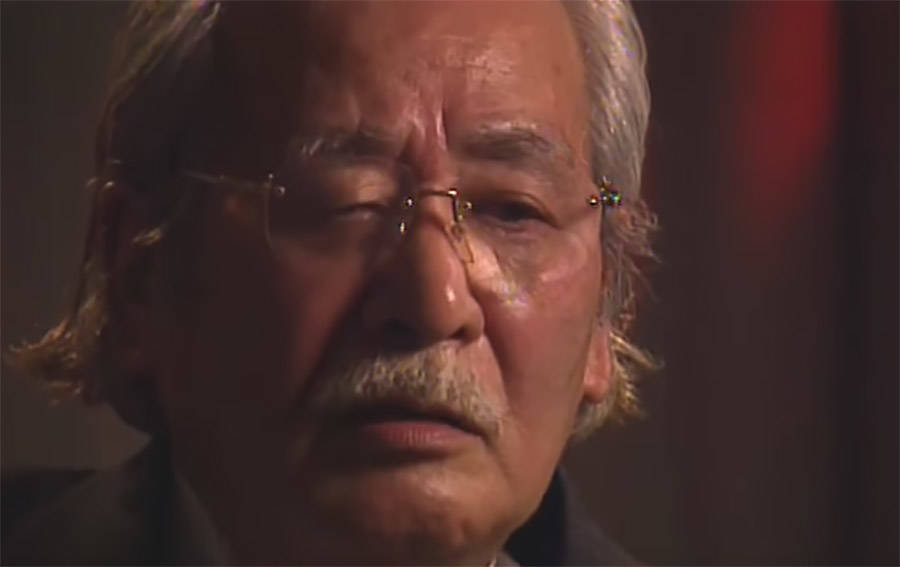Mutsuhiro Watanabe was so deranged as a prison guard that General Douglas MacArthur named him as one of the most wanted war criminals in Japan.

Wikimedia CommonsJapanese prison guard Mutsuhiro Watanabe and Louis Zamperini.
Angelina Jolie’s blockbuster Unbroken incited some outrage in Japan after its release in 2014. The film, which portrayed the trials suffered by the former Olympian Louis Zamperini in a Japanese prisoner of war camp, was accused of being racist and of over-exaggerating the brutality of the Japanese prison. Unfortunately, the film’s main antagonist was one of the rare cases where the truth needed no exaggeration to shock the public.
Nicknamed “The Bird,” Mutsuhiro Watanabe was born into a very wealthy Japanese family. He and his five siblings got everything they wanted and spent their childhood being waited on by servants. Watanabe studied French literature in college and, being a fervent patriot, immediately signed up to join the army after his graduation.
Because of his life of privilege, he thought he would be automatically granted the esteemed position of an officer when he enlisted. However, his family’s money meant nothing to the army and he was granted the rank of a corporal.
In a culture so deeply rooted in honor, Watanabe saw this humiliation as a total disgrace. According to those closest to him, this left him completely unhinged. Having been focused on becoming an officer, he moved to his new position at the Omori prison camp in a bitter and vengeful state of mind.
It took no time at all for Watanabe’s vicious reputation to spread throughout the entire country. Omori quickly became known as the “punishment camp,” where unruly POWs from other camps were sent to have the fight beaten out of them.

Getty ImagesFormer athlete Louis Zamperini (right) and Army Capt. Fred Garrett (left) talk to reporters as they arrive at Hamilton Field, California, after their release from a Japanese prison camp. Capt. Garrett had his left leg amputated at the hip by torturers.
One of the men who suffered in Omori alongside Zamperini was British solider Tom Henling Wade, who in a 2014 interview recalled how Watanabe “took pride in his sadism and would become so carried away with his attacks that saliva would bubble around his mouth.”
Wade recounted several brutal incidents in the camp, including one when Watanabe made Zamperini pick up a beam of wood over six feet long and hold it up above his head, which the former Olympian managed to do for an astounding 37 minutes.
Wade himself was punched in the face repeatedly by the sadistic guard for a minor infraction of camp rules. Mutsuhiro Watanabe also used a four-foot kendo sword like a baseball bat and bashed Wade’s skull with 40 repeated blows.
Watanabe’s punishments were especially cruel because they were psychological and emotional, not just physical. In addition to horrendous beatings, he’d destroy photographs of POW’s family members and force them to watch as he burned their letters from home, often the only personal belongings these tortured men had.
Sometimes midway between beatings he’d stop and apologize to the prisoner, only to then beat the man into unconsciousness. Other times, he’d wake them in the middle of the night and bring them to his room to feed them sweets, discuss literature, or sing. This kept the men constantly on edge and wore down their nerves as they never knew what would set him off and send him into another violent rage.
After Japan’s surrender, Watanabe went into hiding. Many former prisoners, including Wade, gave evidence of Watanabe’s actions to the War Crimes Commission. General Douglas MacArthur even listed him as number 23 out of the 40 most wanted war criminals in Japan.
The Allies were never able to find any trace of the former prison guard. He had so thoroughly disappeared that even his own mother thought he was dead. However, once the charges against him were dropped, he eventually came out of hiding and started a successful new career as an insurance salesman.

YouTubeMutsuhiro Watanabe in a 1998 interview.
Nearly 50 years later at the 1998 Olympics, Zamperini returned to the country where he had suffered so greatly.
The former athlete (who had become a Christian evangelist) wanted to meet and forgive his former tormentor, but Watanabe refused. He remained unrepentant about his actions during World War II until his death in 2003.
Enjoy learning about Mutsuhiro Watanabe? Next, read about Unit 731, World War II Japan’s sickening human experiments program, and learn the dark secret of America’s World War 2 German death camps. Then, discover the true story of The Pianist.





